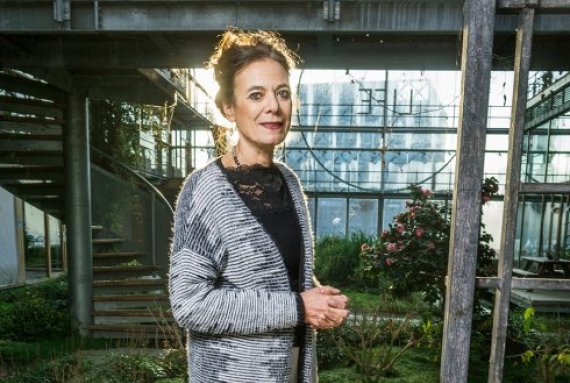Photo: Adrie Mouthaan
Never before in the history of the world had so much food been produced, stated WUR President of the Board Louise Fresco on 27 March during the Forum for the Future of Agriculture in Brussels. But at the same time, our food supply has never been more criticised, especially regarding the pesticides, climate and biodiversity. We need scientifically justified solutions to provide the ever-growing global population with healthy food, Fresco states, but the distrust in politics and science impede their realisation. She worries that we are not using new biological knowledge to create the future biobased and circular food supply.
Intergovernmental panel
Fresco pleads for an intergovernmental panel for future food production that, similar to the climate panel IPCC, would develop scenarios and use scientific insights in the process. In this panel, Fresco would like to see such activities as an investigation into what the role of urban agriculture or insect-based food could be in our future food supply, what the effects of the use of sensors and robots – precision farming – could be on the food production and what possibilities new breeding methods such as Crispr-CAS could offer.
She also wants to investigate the side effects and drawbacks of new technology. ‘The mistake made upon the introduction of GMOs was that the first GMO crops were herbicide-resistant, which mislead the discussion on the topic; we should learn from this. We should investigate what food systems are social and sustainable and introduce new technology into those.’
Food treaty
Fresco thinks that the European Union should take the lead to arrive at a food treaty in which governments come to agreements concerning food policy and scientist come to a scientific consensus regarding the possibilities and limitations of food scenarios. The UN’s sustainable development goals should be leading in this approach.
She thinks that the climate panel, which acts as example, is successful, despite the many largely failed political conferences. ‘When looking at the way climate is approached, one sees that the private sector and public opinion are rapidly shifting towards a CO2-neutral society. I expect that politics will soon follow the public opinion.’ She foresees a similar course for food, as businesses seem to be taking the lead there as well. To get supermarkets to offer only sustainable food would require international agreements and norms, Fresco argues.
‘Wicked problem’
Katrien Termeer, professor of Public Administration and Policy in Wageningen, agrees with the idea that Fresco suggests. ‘With this step, she is setting an agenda.’ Our food supply is a large and important issue, Termeer says, but in addition also a ‘wicked problem’; a complex issue without unanimity about the facts or even what value to attach to these facts, and with the risk that today’s solutions will become tomorrow’s problems. ‘In such a setting, a proposal to integrate and connect is very good.’
Termeer thinks that an authoritative food panel similar to IPCC could also bring advantages to science. ‘It could create a global community of scientists. Everyone would want to be a part of this, and it would create opportunities for both scientific and societal dialogue. However, the condition to achieve this is that all elements of food are given and allowed a place, including social sciences, local food knowledge and geopolitical insights.’
Political clashes
But we should not forget that food is mostly a political issue, she continues. Political clashes will accompany the conclusion of a treaty and the formation of a panel. It is also still questionable whether this should be connected to the UN and how support should be obtained from other organisations such as the FAO, companies and NGOs. This makes the matter increasingly complicated, although one would want such a new panel to be accountable and transparent. This makes the proper institutional design of such a treaty and food panel an issue for now, especially if you want it to help restore trust in politics and science the way Fresco intends it to.

